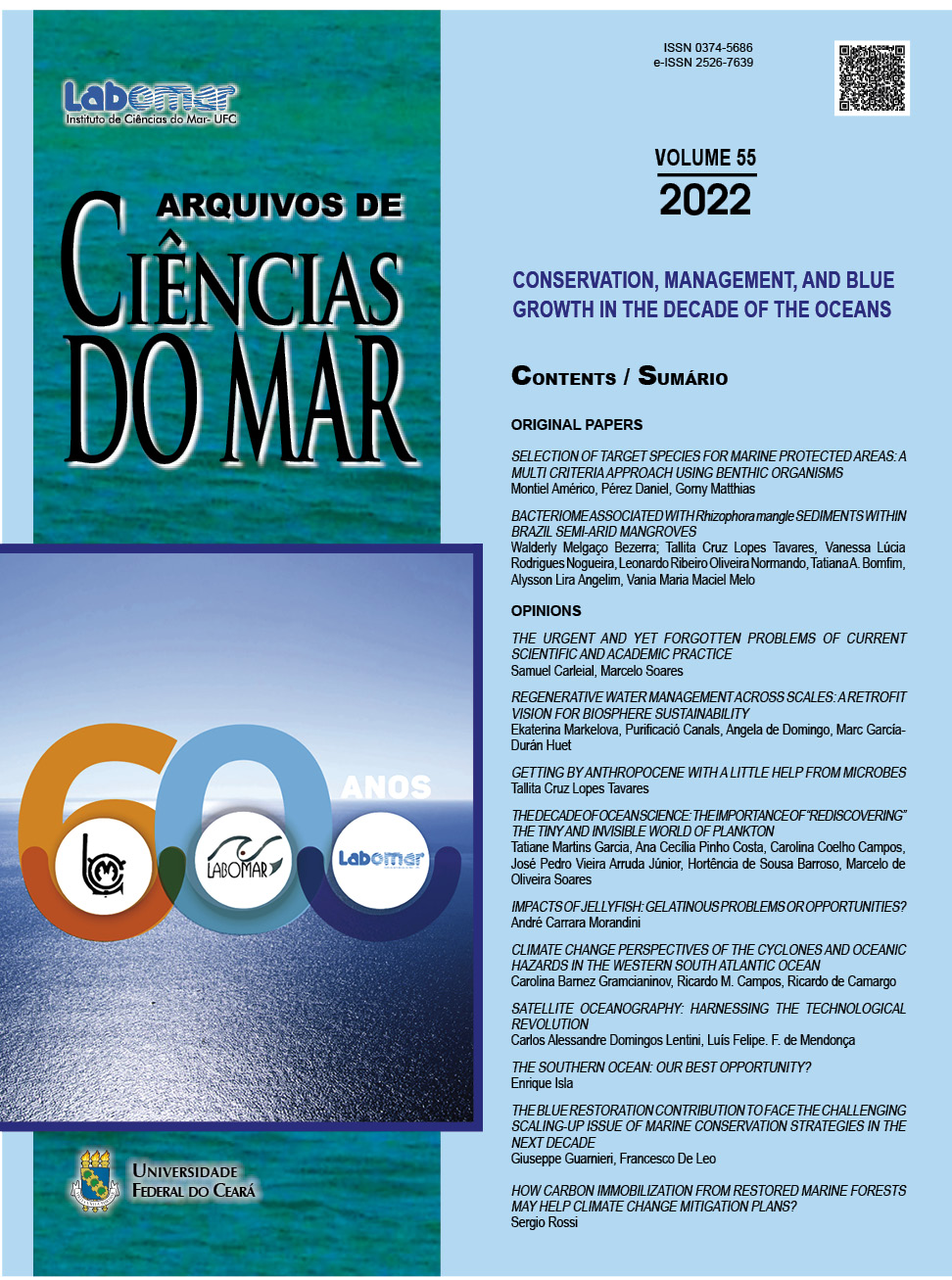EDITORIAL: A homage to the past aiming at the future
EDITORIAL: Uma homenagem ao passado visando o futuro
DOI:
https://doi.org/10.32360/acmar.v55iEspecial.78606Resumen
Are the oceans dying? This is a question that many people are asking themselves more and more insistently. The answer is that in no case are they dying – but they are being transformed. Deeply. Unfortunately, this transformation has changed the ocean for a worst stage in terms of overall quality. Human-induced changes across the globe affect marine more than terrestrial ecosystems. And, at sea, there is a problem: because it is not our environment, it is not easy for us to see what is happening. However, make no mistake: oceans connect all continents and have a profound impact on the terrestrial ecosystem as well. All over the world, the disappearance of large predators (whales, sharks, tuna fish, turtles, seals, swordfish, etc.), as well as the drastic reduction in many living structures on the seabed (coral reefs, algae meadows and higher plants, deep corals, etc.), has led entire ecosystems to change and achieve a new balance on the basis of abundant small organisms and accelerated life. And there is more: persistent pollution, both chemical and biological, and the “not fully understood but certain” effects of climate change may be adding to the plight of our oceans as we know them. Unfortunately, we cannot claim to know the full impact that such changes may have on the entire system, on the functioning of our planet, and on our own survival. In fact, ocean science is still dealing with several challenges to understand the largest area of the world, their needs and priorities, as well as potential solutions.
Descargas
Publicado
Número
Sección
Licencia
1. Proposta de Política para Periódicos de Acesso Livre
Autores que publicam nesta revista concordam com os seguintes termos:
- Autores mantém os direitos autorais e concedem à revista o direito de primeira publicação, com o trabalho simultaneamente licenciado sob a Licença Creative Commons Attribution que permite o compartilhamento do trabalho com reconhecimento da autoria e publicação inicial nesta revista.
- Autores têm autorização para assumir contratos adicionais separadamente, para distribuição não-exclusiva da versão do trabalho publicada nesta revista (ex.: publicar em repositório institucional ou como capítulo de livro), com reconhecimento de autoria e publicação inicial nesta revista.
- Autores têm permissão e são estimulados a publicar e distribuir seu trabalho online (ex.: em repositórios institucionais ou na sua página pessoal) a qualquer ponto antes ou durante o processo editorial, já que isso pode gerar alterações produtivas, bem como aumentar o impacto e a citação do trabalho publicado (Veja O Efeito do Acesso Livre).

